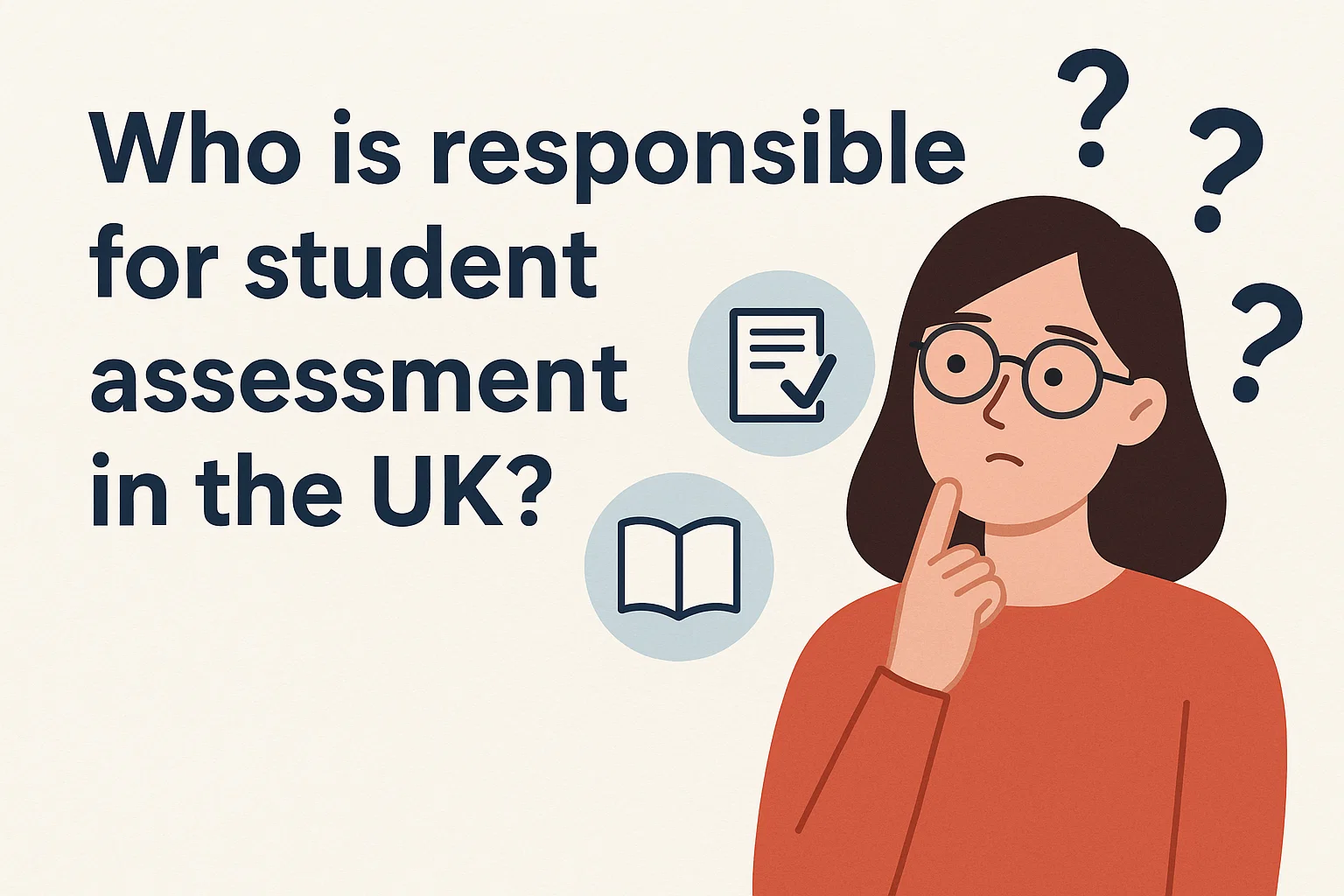Assessment forms the foundation of modern education, and in the UK, academic merit is what really matters in admissions into universities, in employment, and in actual success. Nevertheless, although assessments are very important to the students, a large portion of the students cannot withstand the pressure, structure, and rigorous expectations attached with them. This pressure has created a surge in demand for Assessment Help Services to guide students through assignments, coursework, and examinations.
Which further leads to a question: Who is really supposed to provide help with student assessments in the UK? Is it teachers, exam boards, or is it the government, or some external-professional services? In this blog, we closely examine the players responsible, identify how they interact together, and why reliable academic assistance has come to be a necessary resource for students.
The Role of Teachers in Student Assessment
Teachers, many times, serve as the first line of defense against educational assessment for students. Therefore, their responsibility includes much more than the directive duties. They prepare text plans, provide internal tests, provide criticism, and ensure that a student meets the criteria set in the course. In the UK, teachers directly join it:
- Preparing students for exams and coursework: Through mock test, quiz and practice assignment.
- Providing constructive feedback: Highlighting areas where students can improve.
- Ensuring fairness: to assess coursework and projects based on clear marking norms.
- Guiding learning strategies: Advising students on study habits, time management and exam techniques.
However, with the size and strict time frame of large class, teachers often struggle to pay personal attention to each student, which they need. This is where the professional assessment helps services as an additional layer of assistance.
Exam Boards and Their Responsibilities
In the UK, national exam boards like AQA, Edexcel (Pearson), OCR, WJEC, and CCEA play a central role in student assessment. Their responsibilities include:
- Designing exam papers and assessments: Aligning them with curriculum requirements.
- Maintaining standardization: Ensuring exams are fair and consistent across schools.
- Grading and moderation: Applying national standards to student results.
- Ensuring accessibility: Making adjustments for students with learning difficulties or disabilities.
Although exam boards are responsible for setting the bar, they do not provide personalized help for students. Instead, they leave it to schools, teachers, and parents to prepare learners adequately.
The Role of Government and Education Authorities
The UK Government, through the Department of Education (DFE) and regulatory bodies, looks like the entire assessment structure. His role is:
Set the policies: Define what is taught and how to evaluate it.
Ensure fairness: Monitor the examination boards and ensure equal opportunity.
Introduction to reforms: updating the evaluation methods to reflect modern learning needs.
Provide resource: support schools with money and training for evaluation.
While these officers regulate the system, they do not help individual students directly in the examination or preparation for coursework. This difference often leaves students discovering additional assessment assistance services who provide guidance, resources and subject-specific expertise.
Why Do Students Need Assessment Help Services?
Despite the structured framework in the UK, students face several challenges that make assessment support crucial:
- Heavy Workload – Students often juggle multiple subjects, extracurricular activities, and part-time jobs.
- Complex Assignments – Coursework and research projects demand advanced writing, referencing, and critical thinking skills.
- Exam Pressure – High-stakes exams like GCSEs, A-levels, and university finals bring significant stress.
- Knowledge Gaps – Not every student learns at the same pace, leaving some behind in certain topics.
- Language Barriers – International students may struggle with academic English.
Here, Assessment Help Services provide tailored solutions that bridge the gap between institutional responsibilities and individual student needs.
What Do Assessment Help Services Offer?
Modern academic support platforms have evolved to provide comprehensive help, including:
- Assignment Writing Help – Drafting and editing essays, reports, dissertations, and case studies.
- Exam Preparation – Offering mock tests, revision notes, and practice questions.
- Coursework Assistance – Guiding students through projects, lab reports, and group assignments.
- Proofreading and Editing – Polishing academic work for grammar, formatting, and structure.
- Plagiarism Checking – Ensuring originality through advanced plagiarism detection tools.
- One-to-One Tutoring – Personalized learning sessions on challenging topics.
These services don’t replace teachers or exam boards but act as a supplement, ensuring students get the extra support they need.
Ethical Considerations of Assessment Help Services
One common debate is whether using such services is ethical. Critics argue that it might encourage dependency or even academic dishonesty. However, when used responsibly, these services provide legitimate academic guidance. The key lies in:
- Using services as a learning tool, not a shortcut.
- Ensuring originality and avoiding plagiarism.
- Seeking clarification and mentorship rather than outsourcing entire tasks.
Reputable Assessment Help Services operate within these ethical boundaries, focusing on student growth and academic integrity.
The Benefits of Assessment Help Services
Students across the UK increasingly rely on professional support for several reasons:
- Improved Grades: Access to expert-written resources boosts academic performance.
- Stress Reduction: External guidance reduces exam anxiety and workload pressure.
- Time Management: Students can balance academics with personal commitments.
- Confidence Building: Extra practice and mentorship improve self-assurance.
- Skill Development: Services often teach critical academic skills like referencing, research, and structured writing.
By filling gaps left by teachers, exam boards, and authorities, these services empower students to reach their full potential.
Who Bears the Responsibility for Student Assessment Help?
After analyzing the roles of different stakeholders, it becomes clear that responsibility is shared:
- Teachers are responsible for guiding and mentoring within classrooms.
- Exam boards design and grade assessments.
- Education authorities regulate and maintain fairness.
- Assessment Help Services provide personalized, supplementary support.
- Students themselves carry responsibility to use available resources wisely and ethically.
In reality, no single party can ensure academic success alone. It’s a collaborative effort involving educators, regulators, and external academic services.
The Future of Assessment Help in the UK
As education continues to develop with technology and global competition, the demand for assessment assistance services will only increase. Some of the major future trends include:
AI-Interested Learning Tools: Offering individual recommendations and quick response.
Online tuition platform: to make academic support more accessible for distance students.
Skill-based assessment: Practical, going beyond the memoir for real-world applications.
Collaborative learning models: encouraging teamwork through digital platforms.
These progress shows that educational support will be rapidly merged with traditional education, forming a more overall system where students can thrive.
Conclusion
In the UK, student assessment reflects a multi-tiered process that involves teachers, exam boards, and education authorities, and each one has a critical role to play. Having said all these, their respective needs can simply not be catered for in diverse learning situations for every learner. This is where Assessment Help Services come in: their services fill that gap by offering customized instructional material and mentorship.
Stakeholders share the responsibility of helping in student assessment, but it is mostly the students who will win if and only when they activate a chain of responsible steps in the use of such services. Thus, combining institutional guidance with external support can provide the UK education system with a means to offer just, accurate, and student-centered assessments for all.












Leave a Reply